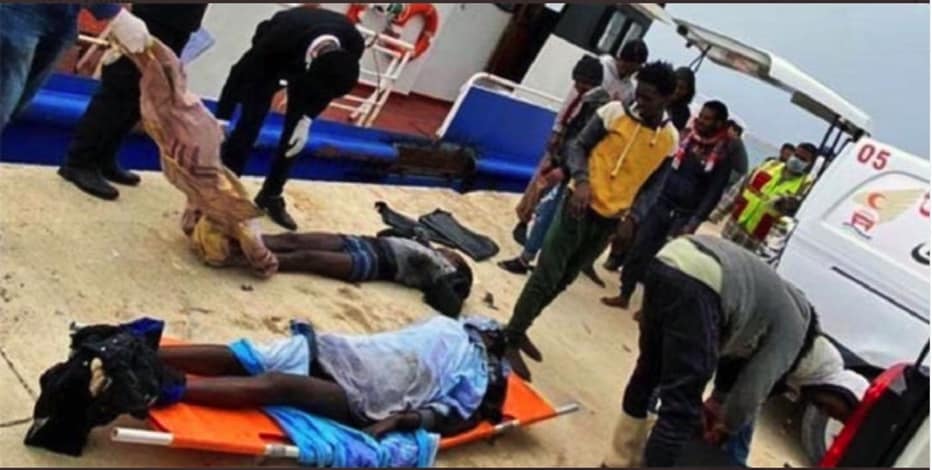
During the Easter weekend of last year, the Maltese army ignored pleas to rescue a boat stranded in Malta’s search and rescue area. After enough time for twelve people to die of thirst while waiting passed, a fishing boat that hid its name and flag picked the remaining survivors up and took them to Libya.
That was a “push back” in breach of Malta’s international obligations. Libya was not a safe country at the time. The night the survivors were dropped on Tripoli’s shoreline, an Italian warship left the harbour because of artillery bombardments.
But where did the fishing boat come from? Its owner testified in court yesterday in a human rights case brought by those surviving migrants who were dumped in Libya and dragged to concentration camps from which they eventually managed to break free.
The owner of the Dar Es Salaam 1 said he was approached by an official of the Maltese army and told to go to the boat in distress. He said the army gave him the fuel, a fact which is corroborated given elsewhere by the army chief. The owner of the fishing boat testified yesterday he got his instructions directly from the army chief which he then relayed to the boat’s captain. He said the army chief instructed him to take the survivors to Libya, which he did.
What does this mean? That the Maltese State tried to hide what it was doing because what it was doing was illegal. It hired a private operator to do the pushing back and tried to conceal its relationship with the private operator. But the private operator confirmed the trip was financed by the Maltese army and the chain of command of the mission went straight to the army chief.
The push back of Easter 2020 was, therefore, an act of the Maltese State not of a private pirate. That means that the episode is a legitimate subject of a human rights case because only States can breach human rights. And case law in analogous situations shows that when the State hires private vessels to act on its behalf, the action must be considered an act of a State.
The Easter 2020 disaster may have been especially fatal – 12 people died waiting for the Dar Es Salaam 1 – but it was far from the only occasion this happened. The boat’s owner yesterday confirmed he had been hired to do this sort of thing at least 3 other times.
The government has been studiously silent about this until now. They couldn’t straight out admit to systemic breaches of international law through frequent and illegal pushbacks, could they? But there’s a reason why they don’t use their flashy army boats for these operations, and instead, hire ramshackle half-century-old fishing trawlers to do the army’s dirty business.
Nice one, Robert Abela. Magistrate Joe Mifsud might have found there was nothing here for the police to look into. But thanks to the action being argued in court by lawyers Paul Borg Olivier and Eve Borg Costanzi and supported by Repubblika, the question remains there. Did Robert Abela break international law when he ordered illegal pushbacks to Libya?
Enter Neville Gafà who also testified yesterday. Yes, he said, he’s been organising push-backs giving the Maltese government the benefit of his contacts in Libya. Neville Gafà has made no secret of this. He rather expects to be given a medal for it a bit like Adolf Eichmann getting the trains to run on time.
Robert Abela tried to distance himself when he realised that any other Magistrate but Joe Mifsud would realise the significance of Neville Gafà’s involvement in this. It would be proof of the government conspiring with another government to break international law. It would splash the blood from the boats South onto the prime minister’s Ivy League suit.
It took some time for Neville Gafà to understand the implications of this. So, he insisted yesterday, he was working “under the jurisdiction” of Libya.
Come again? Who asked you to get in touch with the Libyan Government, Neville Gafà? The Maltese government. Which country were you working from? Malta. Right. You might imagine your house in Mellieħa to be extra-territorial, Neville Gafà but your Keith Schembri-fuelled hallucinations of impunity no longer work for you. This is one country, and even in Mellieħa, Maltese law applies.
And Maltese law includes human rights law. We don’t dump refugees into a war-torn hell-hole without first finding out what made them run away from there in the first place. If our government does that, there are consequences for them to face.
One day, Robert Abela, this will come back.
The case is being heard by Judge Wenzu Mintoff.